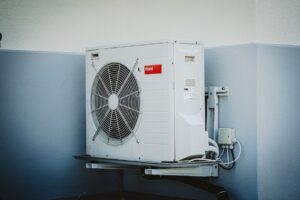
Whether you’re a first-time homeowner or have been keeping your home in tip-top shape for years, it’s always a good idea to have regular maintenance on your HVAC system. An annual check-up can help prevent minor problems from turning into big ones and give you peace of mind knowing that your system is running smoothly. After your HVAC tech has completed their service, be sure to ask them these six questions:
Table of Contents
When Do I Need to Schedule My Next Service?
Depending on the age and condition of your system, it may need to be serviced more or less frequently. The technician will be able to assess your situation and give you a recommendation. Generally, it’s a good idea to service your system yearly to ensure it’s running efficiently and catch any potential issues before they become more significant. By asking this question, you can help ensure that your HVAC system continues to run smoothly for years to come.
What Parts of The System Did They Service?
After your HVAC system is serviced, you should always ask the technician what parts of the system they serviced. This is important for a few reasons; firstly, it will help you to know if the service was performed correctly. Secondly, it will allow you to ask questions about any parts of the system you don’t understand.
Finally, it will help you track the maintenance history of your HVAC system to spot potential issues early. By asking this simple question, you can ensure that your HVAC system is in good working order and that you clearly understand how to maintain it.
What Does My HVAC System Need to Function Optimally?
The goal of any HVAC system is to maintain a comfortable indoor environment while using as little energy as possible. Your system needs to be appropriately sized and maintained regularly. After having your system serviced, ask your HVAC tech what you can do to keep it running optimally.
By understanding what your system needs, you can take steps to help ensure that it runs smoothly and efficiently. They may recommend regularly changing your air filter, having the ductwork cleaned, or ensuring clear airflow around the outdoor unit. Following their advice can help ensure efficient functioning.
What Did They Find Wrong With the System?
After your HVAC system has been serviced, it’s always a good idea to ask your technician what they found wrong with the system. This will enable you to stay on top of any issues and ensure that your system runs smoothly. Some common issues that technicians may find include clogged filters, dirty coils, or leaks in the ductwork. By addressing these problems early, you can avoid more serious issues down the road and keep your HVAC system running efficiently.
What Were the Results of The Energy Efficiency Tests?
These tests are vital because they help identify areas where your system is not running as efficiently as possible. In some cases, simply making a few adjustments can dramatically improve the energy efficiency of your system. In other cases, you may need to invest in new equipment. Either way, the results of the energy efficiency tests will give you a good idea of where to start.
What Kind of New Technology Is Available for My HVAC System?
Be sure to ask the technician what new technology is available for your system. You may be surprised to learn that some significant advances in HVAC technology have occurred in recent years. For example, systems can automatically adjust temperature settings depending on the time and outside weather.
This can help reduce your energy bills by only utilizing your HVAC unit when necessary. Some systems come with smartphone apps, so you can control the temperature from anywhere. With all of these new options, it’s worth taking a few minutes to ask your HVAC technician what might be suitable for your home.
After your HVAC technician completes their yearly service, you should ask them these questions to ensure everything is in working order. By considering these questions, you can proactively address potential problems and keep your home comfortable all year long.



